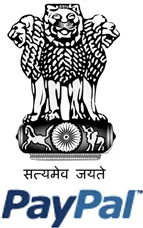 PayPal has around 175,000 users in India so it naturally became a big issue when PayPal had to temporarily suspend part of their operations here due to enquiries from Indian regulators.
PayPal has around 175,000 users in India so it naturally became a big issue when PayPal had to temporarily suspend part of their operations here due to enquiries from Indian regulators.
The issue was resolved after about a month but users in India were no longer allowed to use the PayPal service for receiving personal payments. That’s because personal money transfer via PayPal falls in the category of “inward remittances” and PayPal probably doesn’t have the license to run a remittance service in India.
That said, professionals, businesses, freelancers, and other service provides are allowed, like before, to withdraw money from PayPal to their local bank accounts as long as they can submit the right purpose code at the time of the withdrawal.
It now however appears that PayPal’s India operations are still under the scrutiny of government and if they aren’t able to satisfy the regulators, be prepared for another disruption.
Alpana Killawala, who is the Chief General Manager at the Reserve Bank of India, told Jaimon Joseph the actual reason why PayPal had to temporarily stop transactions in India:
All money flowing across Indian borders is subject to two major laws. The Foreign Exchange Management Act (FEMA) and the Payments and Settlements Act of 2007. According to those laws, organizations like PayPal should have submitted themselves to scrutiny by the RBI. They hadn’t, so they were pulled up.
The Reserve Bank of India has now sent a detailed questionnaire to PayPal that they are expected to answer by April 30, 2010. If PayPal is unable to satisfy the regulators, Alpana says, “their operations could be disrupted again.”
You may dislike PayPal for their high transaction fees or because they have their own currency exchange rates, but the fact is that they are more or less a monopoly and there aren’t too many good PayPal alternatives in India yet.
I just hope this tussle between the RBI and PayPal get resolved soon and that the government makes it easy for other online payment services to enter and operate in India so that we have more choices.


